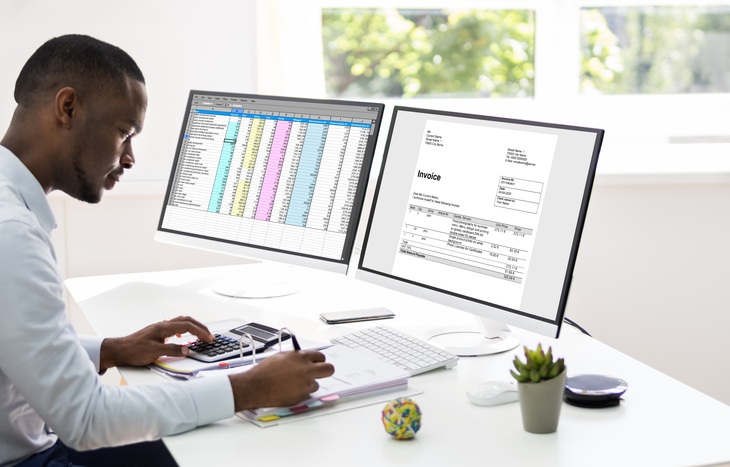What is Managerial Accounting?
Accounting is a broad term that covers many different objectives, depending on how it’s practiced. Most often, we think of accountants and financial accounting. However, managerial accounting is an equally important practice. It focuses on providing financial information to managers, who use that data to guide and measure operational planning and decisions.
In fact, managerial accounting seeks to link a company’s financial performance to the individual factors that drive it. Revenue figures direct attention to the company’s sales practices. In addition, the balance sheet might prompt executives to pursue a specific reduction strategy. Whatever the circumstances, managerial accounting symbolizes the company’s willingness to apply financial data to operations. As a result, this will improve results in a measurable way.
Managerial accounting is such an important tool for executives in both the day-to-day and broad-level oversight of an organization. Theerefore, let’s take a closer look…

Managerial Accounting vs. Financial Accounting
There’s often confusion between managerial accounting and financial accounting. Overall, both deal with the company’s financials, but in different ways.
- Financial accounting is a purely quantitative practice that generalizes financial operations and provides high-level data about a business’ financial activities.
- Managerial accounting helps executives measure the economic impact of their decision-making. It’s a yardstick for understanding the fiscal impact of operational changes.
It’s best to think about them sequentially. In general, accountants prepare high-level data about the company’s finances. Then, executives put that data to work. Financial accounting enables managerial accounting. Specifically, the more accurate and timely the insights provide, the quicker and more effectively management can prepare that data for beneficial change.
Focuses of Managerial Accounting
What, exactly, does managerial accounting entail? In practice, it can refer to a broad range of practices. It’s wherever management uses financial reporting to identify operational changes.
Most Common Examples
- Product costing analysis. Managers examine products to determine the profit margin of each. It’s based on the cost of goods sold (COGS) and sales price. This allows them to better-price products to ensure strong revenues.
- Cash flow analysis. Using financial data, managers look at cash inflows and outflows and the catalysts behind them. This can prompt decisions about how to ensure the company remains cash flow positive.
- Accounts receivable management. Examining accounts receivable activity may prompt managers to reexamine how to extend credit to customers. This factors back into cash flow management.
- General budgeting. Members of the c-suite use managerial accounting to establish budgets for the different business segments they oversee. Specifically, this data includes ongoing and new initiatives. And overall, these budgets all come together in the broad company budget.
- Trend and variance analysis. What positive trends are prevailing within the company? Next, are there any negative, concerning trends? Financial modeling provides these insights so managers can deploy strategies. Finally, this is done to capitalize on positive trends and reverse negative ones.
As mentioned, any time there’s an operational decision that relies on financial data, managerial accounting comes into play. A data-driven approach to problem-solving is the smartest way for companies to understand their inner workings. It allows them to take steps to maximize the efficiency and productivity of operations.
Measuring and Reporting the Results
A crucial part of managerial accounting is measuring out operational changes. To illustrate, this is done by using financial data to gauge the effect of changes already put into motion. If an executive raises the prices of products, they’ll want to see how it affects sales. On the other hand, if they change purchasing trends, they need to know how it affects inventory turnover. These changes and others like them come through in financial insights, measured over time. The company’s financial statements inform decision-making. Moreover, they also yield insights about its effects, good or bad.
Managers observe financial trends due to operational changes. Therefore, they compare and contrast them against key performance indicators, goals and other metrics. Even though managerial accounting is an internal practice, they are commonly included in a company’s public-facing financial reports. First, it will benefit investors to read them. Doing this will allow them to better understand certain operational decisions and financial trends.
Commonly Used Reports in Managerial Accounting
Executives will often times rely on specific reports to provide contextual data for key aspects of operations. For example, these include:
- Budget reports show the company’s budget and its current progress (or deviation).
- Costing reports provide the necessary information about COGS and expenses.
- Inventory reports give a snapshot into current inventory levels and trends.
- Statement of cash flows to better-understand monetary inflows and outflows.
There are dozens more that management can use to qualify accounting data. For instance, this includes reports targeted at sales, expenses, employee reports and much more. Each financial report contains the insights needed to make managerial decisions. Those reports will eventually reflect the results of any and all decisions.
Putting Financial Data to Work
The practice of financial accounting establishes the top-level facts and figures executives need to understand the health and stability of their company. It’s up to these top-level stakeholders to put that data to work, using managerial accounting to plan and predict impacts, and to measure them once they’re in effect. It’s the all-important “other side” of the accounting coin.
The complexities of accounting are too broad to explain in-depth here. However, it’s essential for every investor to understand the basics. Sign up for the Liberty Through Wealth e-letter to start building wealth in your life. These financial experts will provide market analysis, financial insights and more.
[adzerk-get-ad zone="245143" size="4"]




